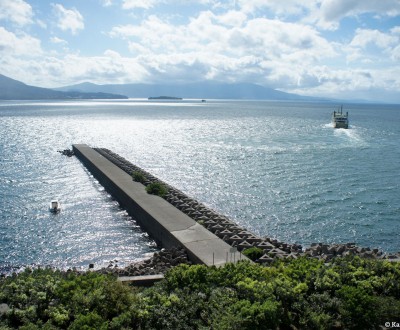Golden Week - Japanese Holidays
Golden Week is a collection of public holidays in Japan between the end of April and the beginning of May, which last for about seven to ten days around a weekend. It's one of Japan's busiest holiday seasons, besides New Year's Eve, Obon in mid-August and sometimes Silver Week in late September.
The Golden Week, is said a Japanese specificity although it can also been observed in China, is a several consecutive days long period during which the country seems to be running in slow motion.
How do these days-off work
The Japanese Golden Week usually lasts five or more days in early May. It is punctuated by three consecutive national holidays, usually leaning back on the weekend that precedes or follows:
- May 3 (宪法记念日 kenpô kinenbi, Memorial Day of the 1947 Constitution)
- May 4 (緑の日 midori no hi, Greenery Day)
- May 5 (子供の日 kodomo no hi, Children's Day, actually centered on boys)
These consecutive days are also preceded by 昭和の日 Shôwa no Hi, a national holiday commemorating the birthday of Emperor Showa, on April 29, which many connect to the Golden Week.
A new day was added to this collection, but only for the year 2019: May 1st to celebrate the enthronement of Prince Naruhito, who succeeded Emperor Akihito.
Here are the periods during which Golden Week will take place in Japan, creating problems for some visits:
- 2024: April 29th (Monday), then from May 3rd (Friday) to May 5th (Sunday) – Some may take full vacations from April 27th (Saturday) to May 5th, for a total of 9 consecutive days
- 2025: April 29th (Tuesday), then from May 3rd (Saturday) to May 5th (Monday) – Some may take full vacations from April 26th (Saturday) to May 5th, for a total of 10 consecutive days.
- 2026 : April 29th (Wednesday), then from May 2nd (Saturday) to Mai 5th (Tuesday) – Some may take full vacations from April 29th to May 5th, for a total of 6 consecutive days.
Hard time for international tourists
Of course, most of local shops (such as konbini, shopping malls and other stores) remain open obviously to enjoy the tourist windfall. But many businesses and administrations close at this time, for a five to ten-days break.
As travelers, beware of the Golden Week because all kinds of transportation get really crowded: the Japanese indeed take this opportunity to travel in the archipelago or overseas. It would be a shame, for example, to have a Japan Rail Pass for a week at this quite uncomfortable time to travel in Japan. The beginning of the holiday period is complicated with people leaving big cities, and its end in the opposite direction. We therefore advise you to book your seats as soon as you arrive in Japan, especially in Shinkansen 🚅 bullet trains.
Similarly, many accommodations such as hotels 🏨 or ryokan are sold out months in advance, and / or take the opportunity to raise their rates. So it is crucial to plan your trip well in advance at this time of the year.
In addition, it is sometimes difficult to withdraw money, even from ATMs because they are often locked into banks' schedules (which are closed for several days). As the country is not yet very well-equipped for payment by credit card 💳, it's necessary to provide a lot of cash in advance.
Therefore, it is highly recommended not to choose Japan's most-visited tourist destinations during the Golden Week. If you can avoid traveling to the archipelago during this period, it's a better choice!
Other national holidays: Silver Week and New Year's Eve
Recently, talks have started to rise about a シルバーウィーク "Silver Week", the autumn 🍁 break mirroring the spring 🌸 one. It is allowed by the proximity of 秋分の日 shubun no hi, Autumnal Equinox Day (September 22 or 23), with a second public holiday 敬老の日 keiro no hi, Respect for the Aged Day, held on the third Monday of September.
In 2015, the Silver Week was extended from September 19 to 23. The next one, expected for 2026, will occur on the same dates. Then in 2032, the five-day break will be from September 18 to 22.
There's, finally, like a second holiday week around New Year's Day, called Oshogatsu / 御正月. Traditionally, Japanese people take a few days off at that time of the year, to do a vast house cleaning, go to Shinto shrine or onsen ♨️. It is generally between December 29th and January 3rd, during which temples, museum and castles 🏯 in particular often remain closed, with transports crowded in the same manner as during the Golden Week.


